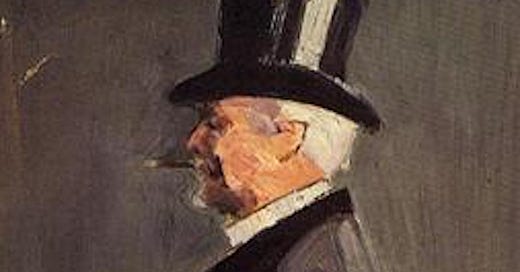What does it actually mean to self-improve? It is a more complicated question than we often realize. For example, many Eastern traditions point to getting over ourselves. You might also remember a recent article titled Becoming Nobody, inspired by the words of Ram Dass. But then, there are other articles on Demanding the Best for Yourself, influenced by the teachings of Epictetus.
The Paradox of Self-Improvement
In the new book, The Art of Self Improvement, author Anna Katharina Schaffner explains that in contrast to most modern self-help, improving ourselves is not achieved by exertion and determination but by yielding, accepting, and giving up resistance.
Schaffner writes,
It is unsurprising that suppleness is one of the most celebrated qualities in the Tao: “A man is supple and weak when alive, but hard and stiff when dead,” according to Lao-tzu. “The myriad creatures and grass and trees are pliant and fragile when alive, but dried and shrivelled when dead. Thus it is said, the hard and the strong are the comrades of death; the supple and the weak are the comrades of life”
Lao-tzu advises us to be a “ravine to the empire” and always seek to “return to being the uncarved block.” The uncarved block is a particularly potent image of our natural way of being: unadorned yet full of potential; it symbolizes the plain beauty of our precultural selves, writes Schaffner.
Similarly, the psychologist Viktor Frankl (author of Man’s Search for Meaning) advocated “self-transcendence” in the sense of letting go of our preoccupation with ourselves: “being human always points, and is directed, to something, or someone, other than oneself—be it a meaning to fulfill or another human being to encounter.”
Paradoxically, the more we forget ourselves by dedicating ourselves to an external cause or to people we love, the more we actualize ourselves. “Self-actualization,” Frankl sums up, “is possible only as a side-effect of self-transcendence.” We cannot simply say that we aim to become the best possible version of ourselves. Neither is it enough merely to wish to realize our potential, deepen our self-understanding, or overcome our limitations.
Instead, observes Schaffner, we must identify meaning that is located outside our own psyche. Ironically, to self-actualize, we first need to let go of self-actualization as our aim.
In this sense, Frankl’s existentialist approach challenges the foundations on which most modern self-help advice rests. Essentially, he asks us to let go of our obsession with ourselves and focus instead on meanings that are connected with the well-being of others. Shaffner writes,
The most prominent advocate of letting go as a self-improvement strategy was Lao-tzu. In the Tao te ching (fourth century BCE), Lao-tzu advocates a mindset based on acceptance and yielding and on an absence of striving and conscious effort. In Daoism, letting go centers on offering no resistance to the natural order.
The Wisdom of Being Ordinary
Strangely, many great thinkers advise a path of self-improvement as realizing how insignificant or ordinary we actually are. In the book Things No One Else Can Teach Us, author Humble the Poet tells the story of an encounter with Dr. Roberta Bondura, the first Canadian woman to go into space. Humble asked, what was it like to see Earth from space? “Well, it was a really nice view. But, I think it will be much more transformative when we start traveling to Mars,” said Bondura.
“Why’s that?” he asked. Bondura responded,
Because at one point, when traveling from Earth to another planet, we’ll look out the window and won’t be able to see either. It will be empty, cold, and lonely and will remind us how insignificant we really are.
Before I started In Search of Wisdom, I didn’t expect much talk of being insignificant. However, more than a few guests have stressed the point. For example, my interview with Oliver Burkeman (author of Four Thousand Weeks) suggested cosmic insignificance therapy.
Burkeman writes,
To remember how little you matter, on a cosmic timescale, can feel like putting down a heavy burden that most of us didn’t realize we were carrying in the first place. This sense of relief is worth examining a little more closely, though, because it draws attention to the fact that the rest of the time, most of us do go around thinking of ourselves as fairly central to the unfolding of the universe…
Although just because our place in the universe may not be as grand as we think. It does not mean that we or our actions are less important. As Mahatma Gandhi suggested, “Whatever you do in life will be insignificant, but it is essential that you do it.”
—
Thank you for reading; I hope you found something useful.
Until next time, be wise and be well,
P.S. As a reminder, I do a free weekly meetup every Friday at Noon EST called Reading & the Good Life with The Walled Garden if you’re ever interested in connecting for casual conversations on the art of living.






Loved this!
Thank you for this thoughtful piece. Most people seem to believe self-improvement is a process of taking an empty vessel and adding to it until one feels whole, completed and satisfied. But I've yet to meet anyone who was satisfied. My view is that we already are a whole and complete vessel and that self-improvement is a process of removing familial and societal conditioning to reveal our original wholeness. The former is like using perfume to mask body odor; the latter is like taking a shower.